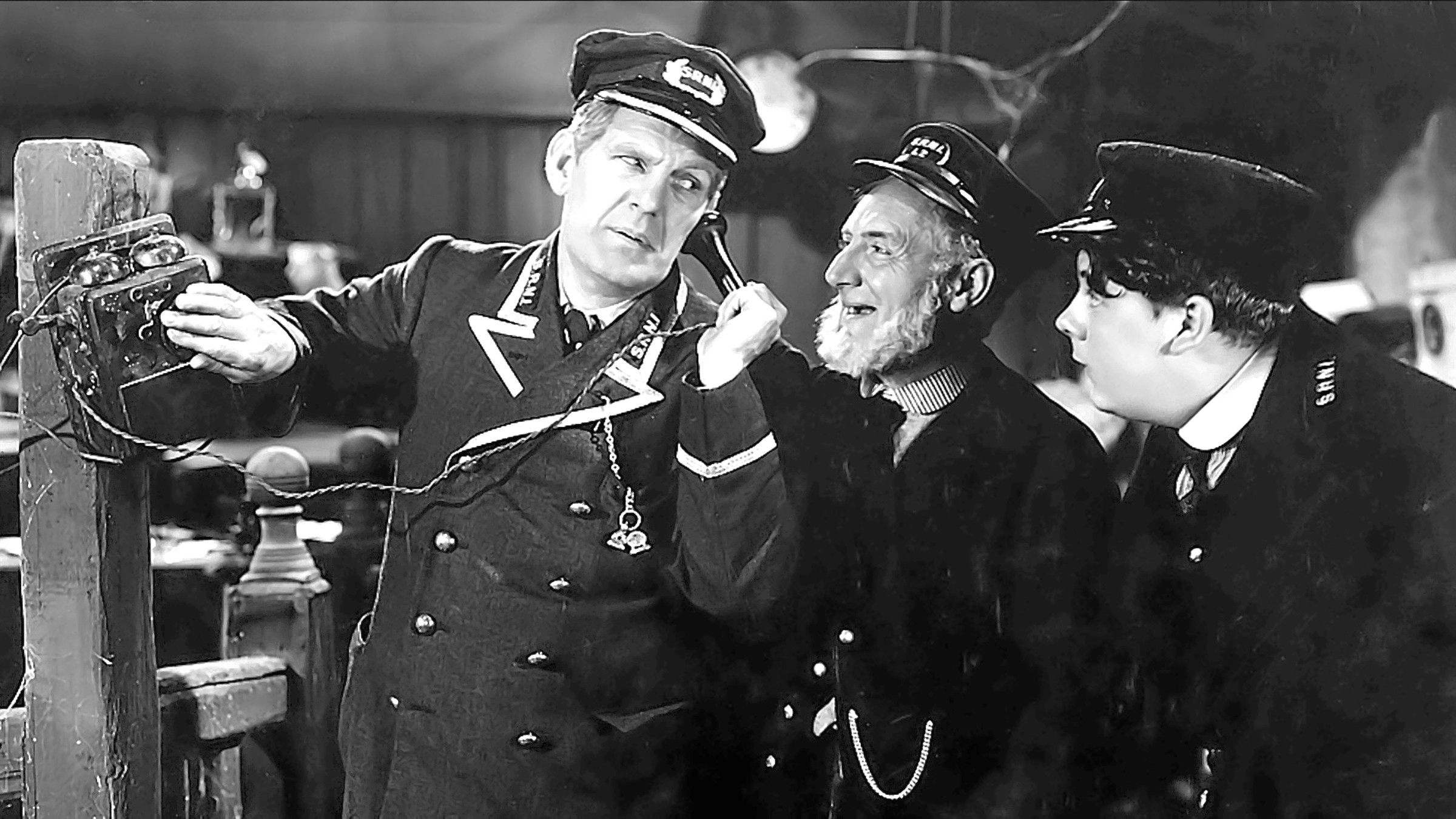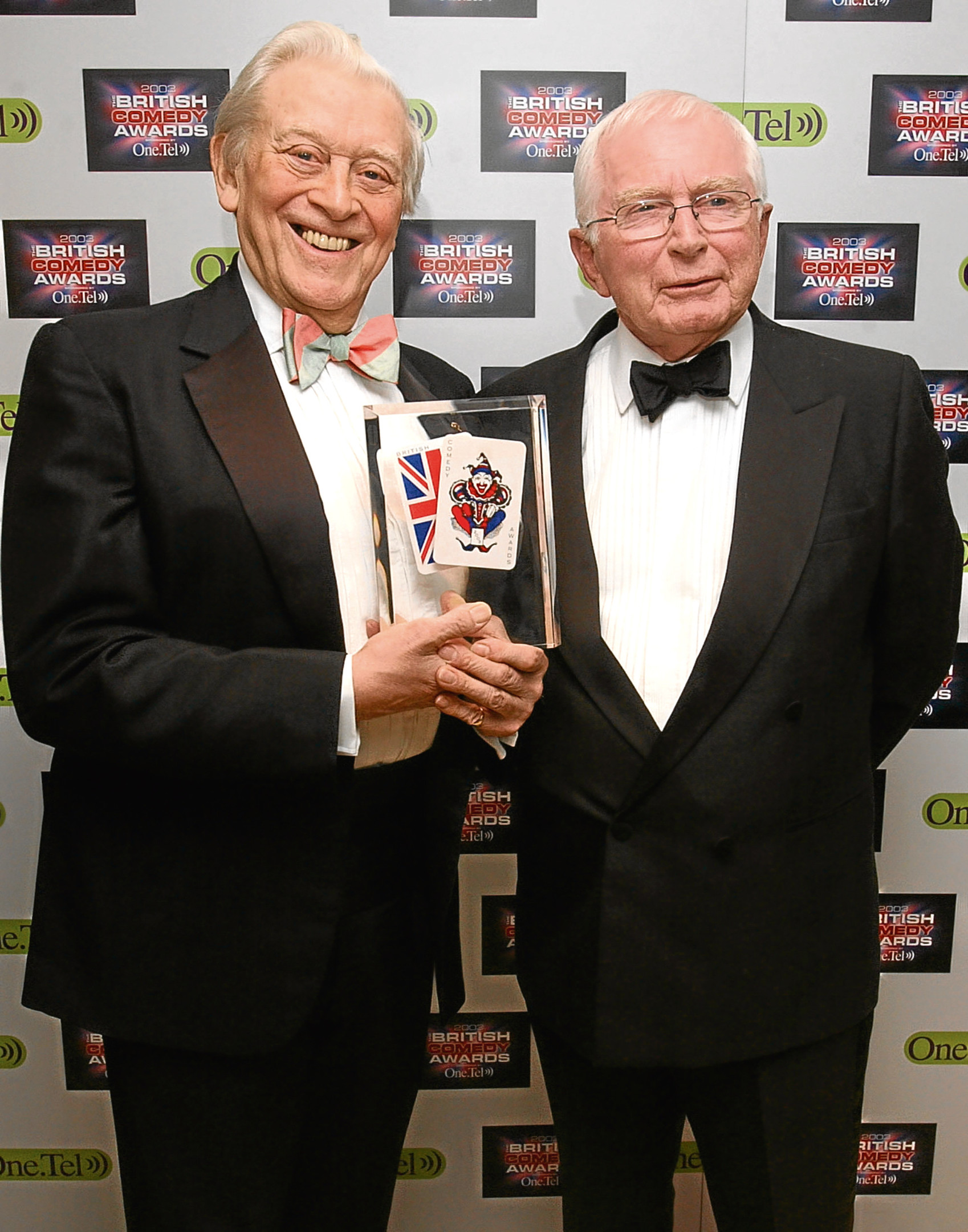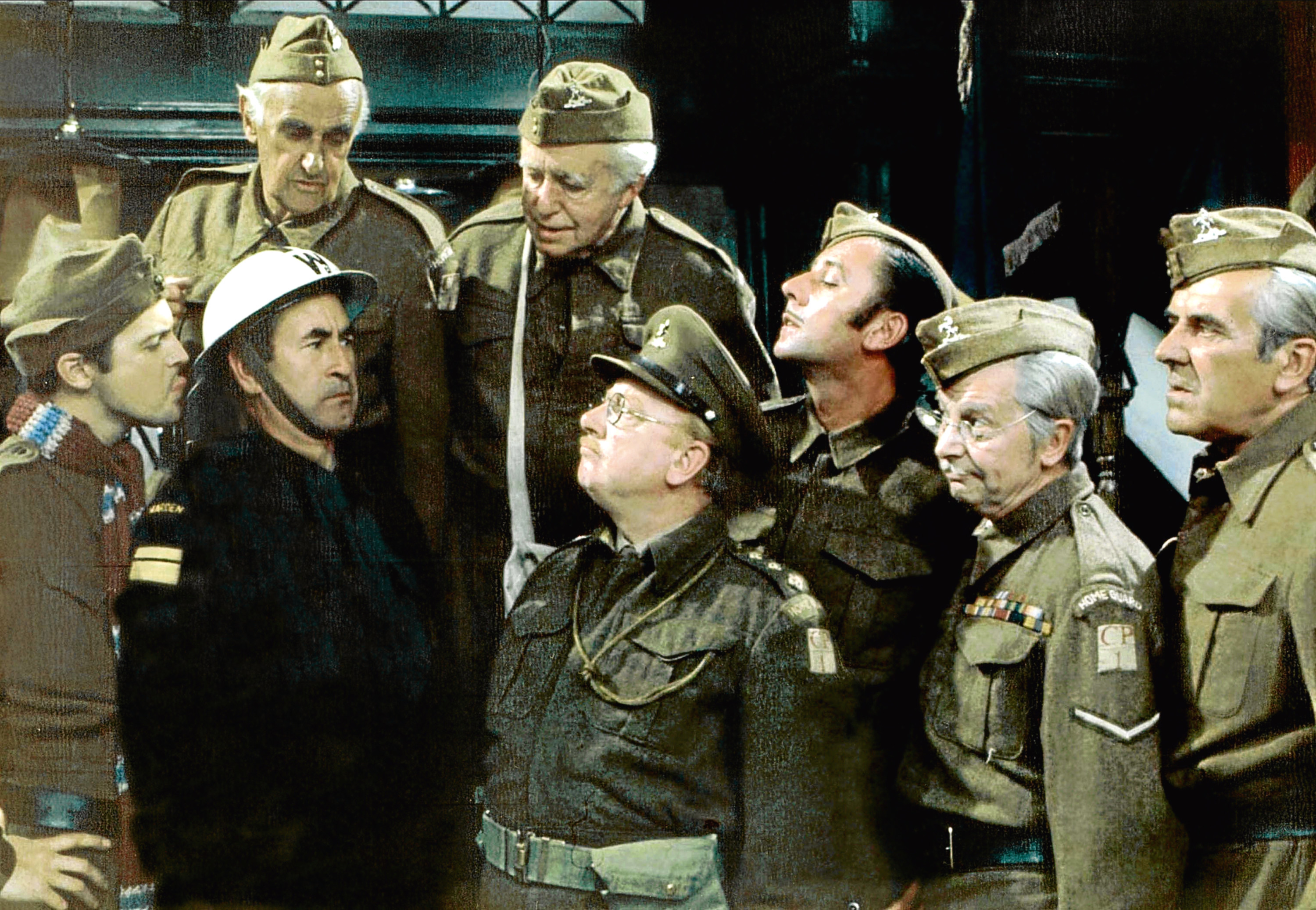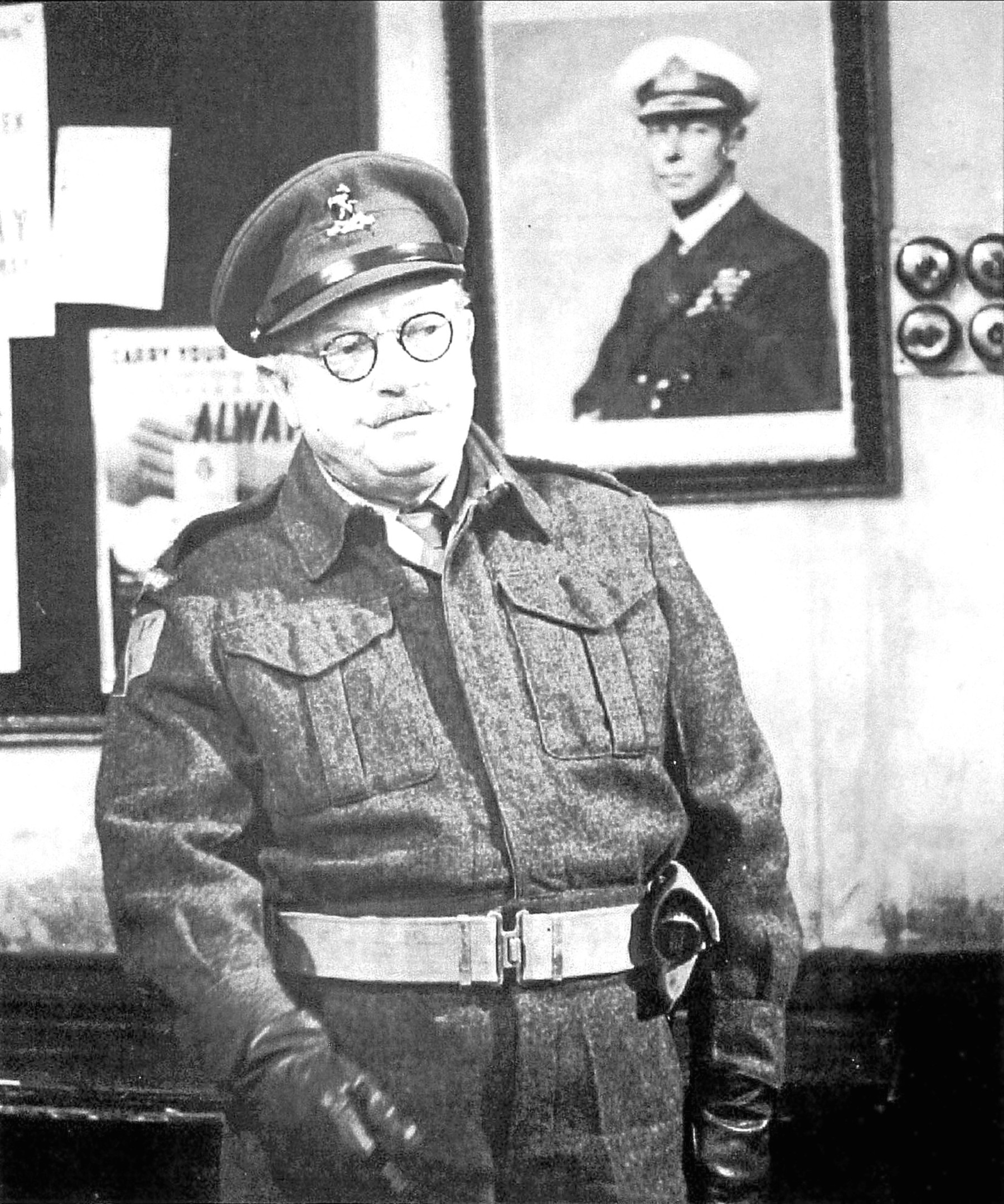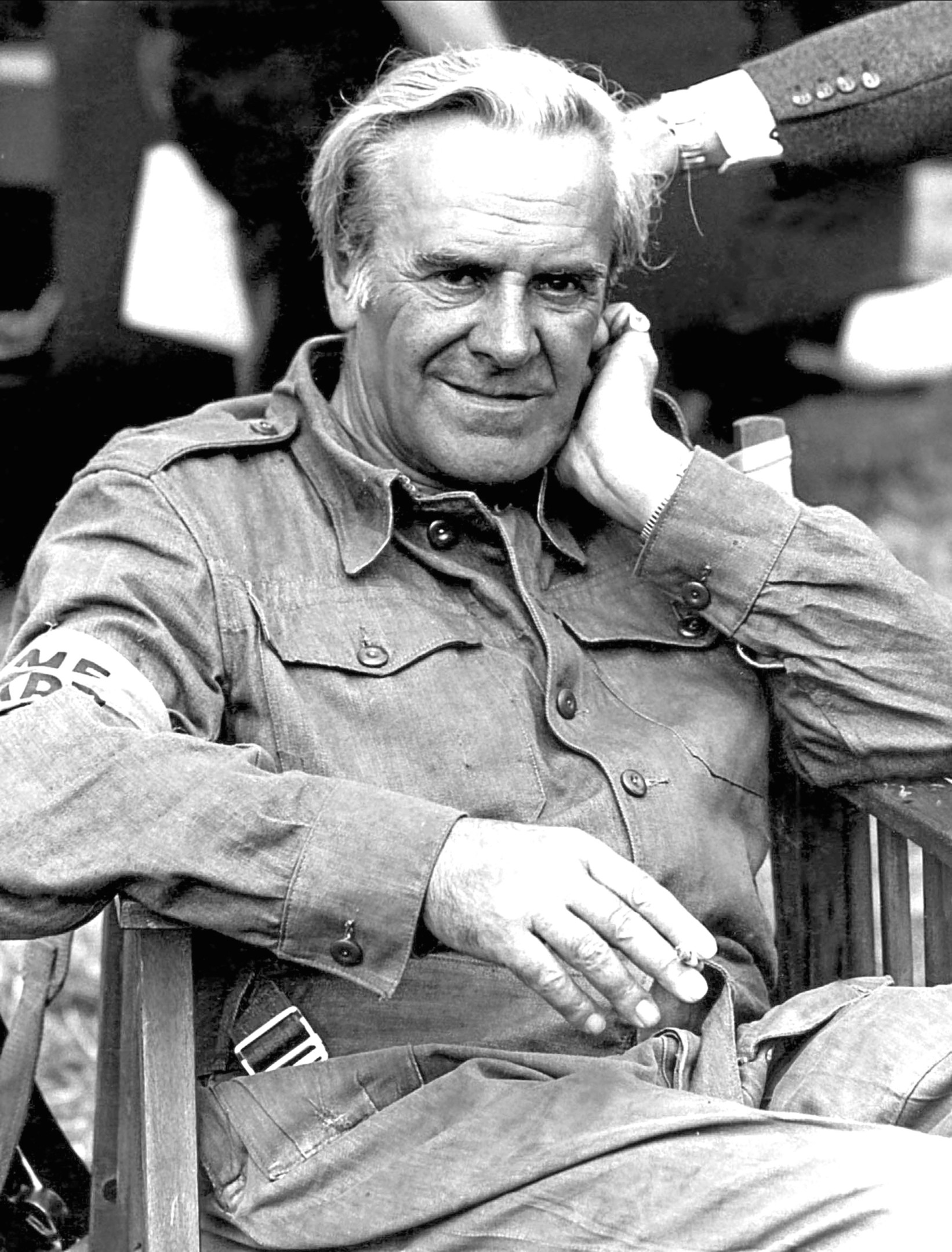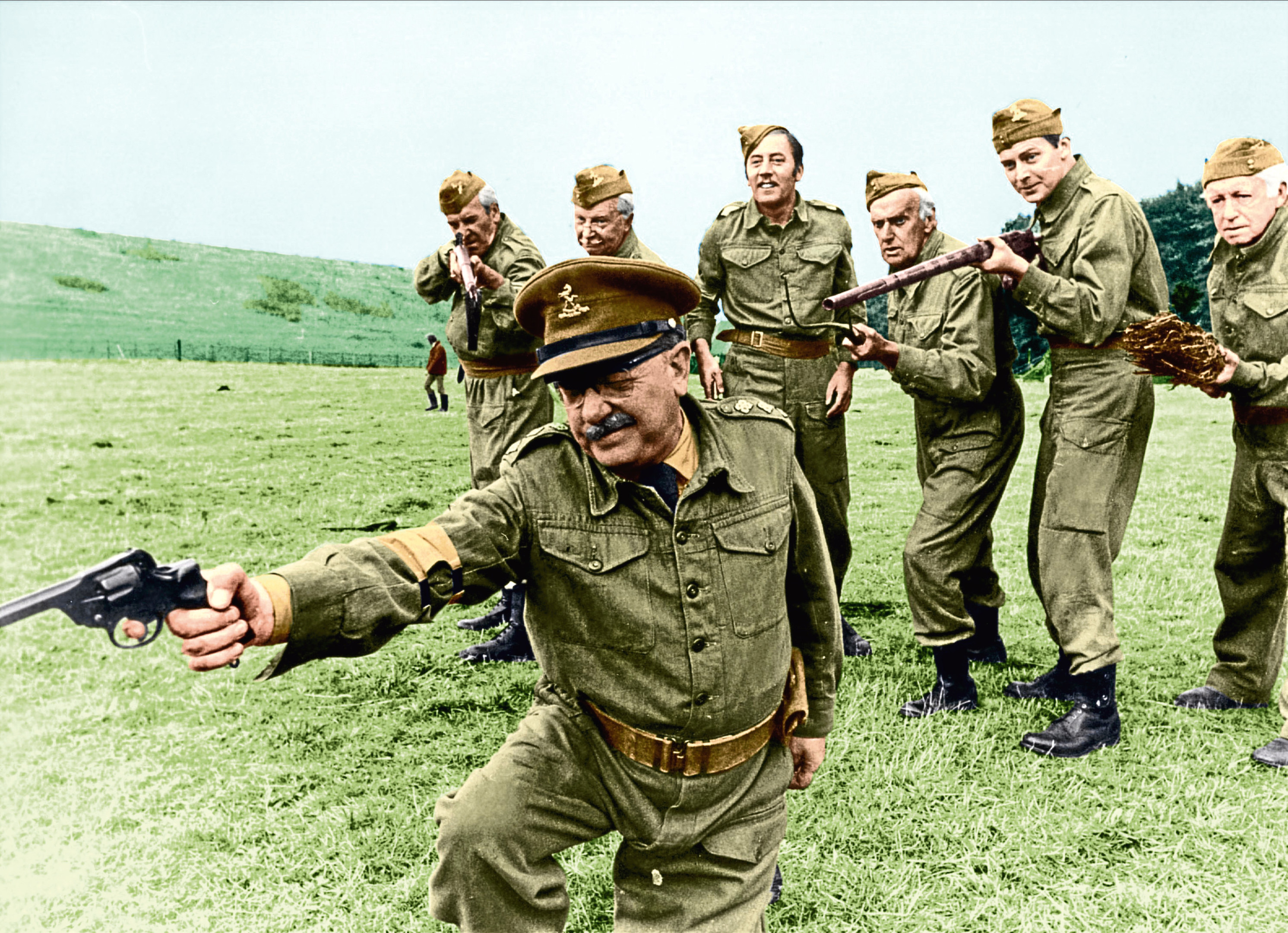
IT’S 50 years since the evergreen Dad’s Army marched on to our screens, but even now — all these decades later — it remains the undisputed doyen in the pantheon of British comedy.
Few, if any, programmes attract continual prime time transmissions so long after first gracing our screens.
With audience figures regularly trouncing that of its rivals, one can only sit back and admire gleefully this pearl of a programme penned by the legendary Jimmy Perry and David Croft, who also brought us Hi-De-Hi! and It Ain’t Half Hot, Mum, among others.
Although critics and audiences weren’t bowled over by the escapades of an ensemble of mainly veteran character actors when the first series was aired in 1968, that soon changed.
When the idea for a show about the Home Guard was conceived, Jimmy Perry, who died in 2016, was working for Joan Littlewood at the Theatre Royal in the East London suburb of Stratford.
At this point in his career, Jimmy’s only experience in the medium of TV was as an actor. His writing output consisted solely of pantos and comedy sketches.
But for some time, he’d had a desire to write for the small screen.
“I kept telling myself that I must write for TV as I could create a good part for myself — that was the main reason for writing Dad’s Army!” Jimmy revealed.
On his daily train ride to Stratford East, he considered the idea.
He was convinced of one thing — the success of Bilko and The Army Game proved a good service comedy series never failed.
“It was important I wrote about something I’d experienced and understood,” said Jimmy. “Then I thought about the Home Guard — after all, I’d served in it at Barnes and Watford during the Second World War.”
When, as a teenager, Jimmy peddled his bike to join the Home Guard, he knew he was prepared to die for his country, if necessary.
He spent four years as a member of the real Dad’s Army, an experience he’d never forget and one which he drew on when co-writing the sitcom with David Croft, who died in 2011.
“I was excited,” he said. “I couldn’t wait for the Germans to come. It was a terrible time but, just like many other youngsters, it didn’t affect me as much. I couldn’t wait to get my hands on a rifle.
“My mother didn’t like it very much, especially as we had to bring our rifles home, even though I was too young to be allowed ammunition.”
After working all day in a munitions factory, Jimmy spent several evenings a week attending lectures or guarding various sites in the local area.
“We used to strip down and reassemble Lewis guns,” he recalled. “There were two teams and everyone was blindfolded.
“When the whistle went, we’d strip it as quickly as possible, then put it back together again. There were cheers for each side, it was like The Generation Game, only we were dead serious.”
Spotlighting the Home Guard in a sitcom seemed like a decent idea to Jimmy Perry — and one that hadn’t been tackled before. But it was 1967, more than 20 years since the war ended, and no-one mentioned the Home Guard any more.
Jimmy acknowledged ruefully that everyone had forgotten about the role the Home Guard played during the war.
“I went along to the local library to see what books they had on the subject and was astonished when the librarian asked: ‘The Home Guard, what’s that then?’” Jimmy revealed.
Next stop on his research trail was the Imperial War Museum. After returning home with pamphlets describing how to make Molotov cocktails, the memories came flooding back.
“I was a 15-year-old boy in the Home Guard again, but I was convinced this was a subject that could be successfully explored through comedy,” he said.
Jimmy set to work, sketching out a brief synopsis, giving thought to principal characters, and settled down to write the first script.
For a while, he puzzled over how to construct the opening episode, but gained inspiration from the Will Hay movie, Oh, Mr Porter!, which was being screened that Sunday afternoon.
“One of the movie’s strengths was the wonderful balance of characters — a pompous man, boy and an old man,” said Jimmy. “The combination made for perfect comedy.”
This became a key influence when writing the first of his wartime-based scripts, which was originally titled The Fighting Tigers.
Switch on any episode of Dad’s Army and one laughs at the antics Captain Mainwaring and his ill-equipped, ill-trained platoon get up to, but all the time, Jimmy Perry and David Croft were drawing on their own wartime experiences when scripting the series.
The dearth of weapons at the beginning of the series, the makeshift alternatives comprising golf clubs, old shotguns and other oddities were all reflections of what life was like for Jimmy.
“One section of the first episode considered how to tackle a tank with a burning blanket — I remember having lectures about that,” he recalled.
When the first script was completed, he was chuffed with the result, but put it aside for several weeks.
During the summer of 1967, Perry’s then agent, who happened to be David Croft’s wife, offered him a small part in Beggar My Neighbour, which Croft was directing for the BBC.
Playing Reg Varney’s uncouth brother led to an opportunity Jimmy Perry wasn’t going to miss. “We were rehearsing at a boys’ club on a hot summer’s day,” he explained. “I saw David fiddling about with his white sports car and grasped the opportunity to tell him about my script.
“He was non-committal, but agreed to read it.”
The following Monday was the day of recording. As the hours ticked by, Jimmy began fearing the worse until David approached him, enthused by the idea.
Once a second script had been written, David showed the idea to Michael Mills, then BBC’s Head of Light Entertainment.
Mills shared the director’s avidity, but wasn’t convinced about the title, The Fighting Tigers.It was his masterstroke that saw the show renamed Dad’s Army.
On the proviso that David worked with Jimmy — whose experience as a TV writer was limited — on the scripts, Michael Mills was keen to proceed.
From the start, Jimmy and David’s writing styles complemented each other.
After getting together and roughing out detailed plots for two episodes, discussing the odd joke or piece of dialogue, they’d go their separate ways with each writing an episode.
In all the years they scripted Dad’s Army, they never felt the need to swap scripts and read each other’s work.
“It was extraordinary how our writing styles were so similar,” David Croft once commented. “Whenever I watch an episode, I can’t tell who wrote it.”
Within six weeks of the day Jimmy passed the script to David, the BBC hierarchy had given the green light for six episodes to be made, but not before some concerns were voiced.
“Nearly everyone involved was enthusiastic,” said Jimmy. “And any opposition came from people worried about whether we were sending up the efforts of the Home Guard.”
The programme’s format was battled over for some time before it was cleared for transmission.
“The original closing credits, for which I fought very hard, showed vignettes of the artists against a background of authentic war scenes,” explained David Croft.
Enormous phalanxes of marching troops contrasted the might of the German army with its tanks and guns against what Michael Mills described as the “pathetic, comic, but valorous nature of the Home Guard”.
“We also had shots of refugees in the opening credits, but Paul Fox, BBC1’s Controller at the time, was against it,” recalled David.
“I fought hard to keep the credits the way they were. He was also worried about whether the show was taking the mickey out of Britain’s Finest Hour.”
For a while, Dad’s Army was in danger of not going ahead. But a compromise was reached, involving altering the style of the opening credits — striking a balance is what allowed the show to be aired.
With six episodes finally commissioned, Perry and Croft set about refining the characters and finding the actors who would bring to life one of Britain’s best-loved and most popular sitcoms.
Continued next week.

Enjoy the convenience of having The Sunday Post delivered as a digital ePaper straight to your smartphone, tablet or computer.
Subscribe for only £5.49 a month and enjoy all the benefits of the printed paper as a digital replica.
Subscribe